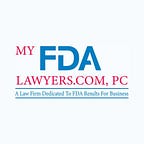Navigating the Maze: Essential Resources for FDA Compliance
The world of food and drug regulations can feel complex and overwhelming. Whether you’re a seasoned manufacturer or a new entrepreneur, ensuring compliance with the Food and Drug Administration (FDA) and the United States Department of Agriculture (USDA) is crucial for bringing your product to market safely and legally. This article serves as a roadmap, outlining key resources like FDA attorneys, consulting services, and navigating potential roadblocks like detentions and inspections. It also delves into the importance of proper labeling under both FDA and USDA regulations.
Shielding Your Business: The Role of an FDA Attorney
FDA regulations are extensive and ever-evolving. Hiring an experienced FDA attorney provides your business with a legal shield and strategic guidance. These attorneys specialize in navigating the intricacies of FDA law, offering invaluable support in several areas:
- Product Classification: Attorneys can help determine if your product falls under FDA or USDA jurisdiction and guide you through the appropriate registration or permitting process.
- Label Review: FDA Label have strict requirements. An attorney can review your label for compliance with claims, ingredients, and warnings, preventing potential delays or recalls.
- FDA Inspections: Inspections are a normal part of the FDA process. An attorney can prepare you for inspections, ensure smooth communication with inspectors, and address any concerns that arise.
- Detention and Refusal: If your product is detained or refused entry at the border, an attorney can represent you and advocate for its release.
- Compliance Strategies: Attorneys can develop comprehensive compliance plans to minimize the risk of regulatory issues and ensure your business operates within the legal framework.
Think of an FDA Attorney as a trusted advisor, proactively mitigating risks and ensuring your product development, manufacturing, and labeling processes are compliant.
Guiding Your Journey: FDA Consulting Services
FDA Consulting Services offer a comprehensive approach to navigating FDA regulations. Consultants, often with past experience at the FDA itself, can provide valuable support across the product lifecycle:
- Regulatory Gap Analysis: Consultants can assess your current practices and identify areas that might not align with FDA regulations.
- Quality Management Systems (QMS) Development: A robust QMS is essential for consistent product quality. Consultants can help you develop and implement a QMS that meets FDA expectations.
- Clinical Trial Support: For products requiring clinical trials, consultants can guide you through the complex process, ensuring proper protocol development and regulatory compliance.
- Post-Market Surveillance: Once your product is on the market, ongoing monitoring is crucial. Consultants can help you establish a post-market surveillance program to identify and address any potential safety concerns.
Utilizing FDA consulting services can save you time, money, and resources in the long run. They ensure your product development and go-to-market strategy are built on a foundation of compliance.
Detours on the Road to Market: Addressing FDA Detentions
FDA detentions occur when your product is held at the border due to suspected non-compliance. This can be a stressful situation, but with the right approach, you can navigate it successfully.
Here’s how to handle an FDA detention:
- Request an Informal Hearing: This allows you to present your case to an FDA official and potentially secure the release of your product.
- Seek Legal Counsel: An FDA attorney can advise you on your legal rights and guide you through the detention process.
- Prepare Documentation: Gather all documentation related to your product, including manufacturing records, quality control reports, and labeling information.
- Work with the FDA: Cooperate fully with FDA officials and address their concerns promptly.
Detentions can be disruptive, but by staying calm, seeking the right legal counsel, and working collaboratively with the FDA, you can minimize delays and get your product back on track for market entry.
Maintaining Transparency: Understanding FDA Inspections
FDA inspections are routine assessments to ensure compliance with regulations. Here’s what to expect:
- Pre-Inspection Preparation: An FDA attorney can help you develop a plan to prepare for inspections. This might involve reviewing documentation, training staff on inspection procedures, and ensuring your facility is clean and organized.
- During the Inspection: FDA inspectors will review your facility, documentation, and manufacturing processes. Cooperate fully, answer questions honestly, and provide any requested information.
- Post-Inspection Follow-Up: The FDA might issue a Form 483 outlining any observed deficiencies. Address these concerns promptly and submit a written response outlining your corrective actions.
Remember, inspections shouldn’t be viewed as punitive. They are an opportunity to demonstrate your commitment to quality and compliance.
